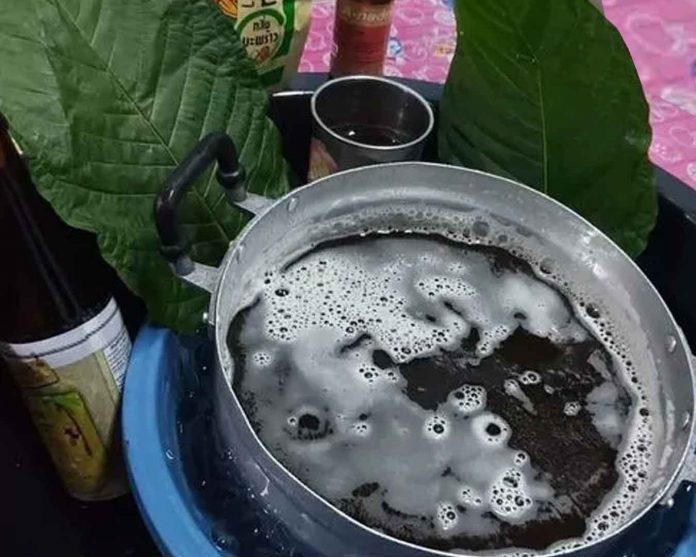Mawlamyine, June (21)
Drug usage and sales have surged in Mon State in the two years since the military takeover, but authorities have taken little action, anti-drug activists and locals told Than Lwin Times.
Drug sales have surged dramatically in the Mon State’s townships of Mudon, Kyaikmaraw, Thanbyuzayet, and Ye, as well as in Paung, Chaungson, Mawlamyien, Belin, Thaton, and Kyaikto.
Among them, the use of WY tablets called Crazy Horse Pills and the drinking of Kratom tea are on the rise, and in some townships, people are using it in public, according to anti-drug campaigners.
A source said, “Currently, people are using both WY and Kratom, but Kratom is popular among young people.
According to Than Lwin Times research, 70% of young people in Mon State drink Kratom tea, while the remaining 30% use WY, also known as Crazy Horse Pills.
Ecstasy and Ketamine, two potent drugs, are being sold in pubs and clubs.
Locals claim that drug use and sales have become widespread among young people in rural areas, and that the military council is failing to take serious measures against drug dealers and customers.

“In their area, there is a growing habit of drinking Kratom tea from middle school age to 60 years old, and the use of WY pills is also increasing among the young and middle-aged,” a resident of Ye Township told Than Lwin Times. In some Mon villages, cooking teams and volunteers who assist in events from weddings to funeral homes were served with Kratom tea.
Health experts point out that if people drink Kratom tea mixed with cough syrup, coffee mix, and Coca-Cola, there may be many side effects.
A social worker said that “people who drink kratom tea often end up with muscle pain, unidentified illnesses, and hospitalizations if they don’t continue drinking. In addition, drug addicts are no longer willing to work, their physical health declines, and they gradually distance themselves from the social environment.
The military council has alleged that, nearly all drug distribution in Myanmar is linked to ethnic armed organizations (EAOs), National Unity Government (NUG) and the People’s Defense Forces (PDFs).
In January 2023, the United Nations Office on Drugs and Crime (UNODC) released a report entitled “Myanmar Opium Survey: Cultivation, Production, and Implications,” which indicated that opium cultivation had rebounded to 33 percent since the military coup.
News – Than Lwin Times
Photo: CJ

